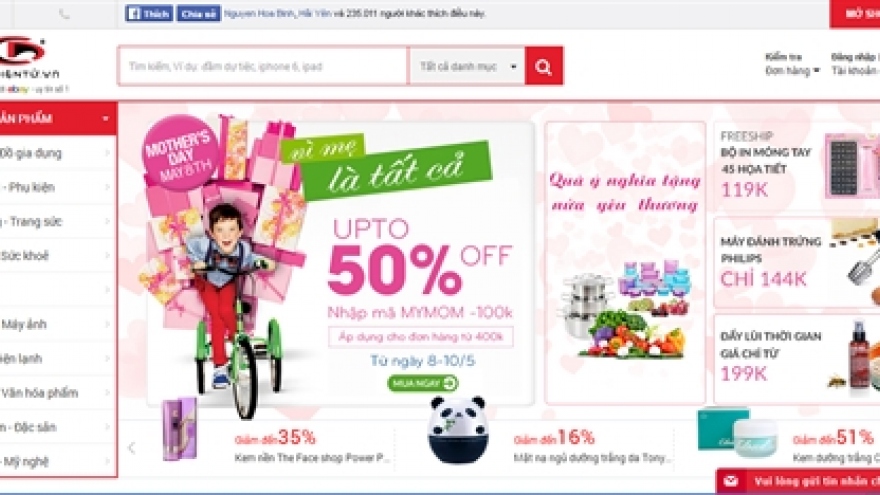Many e-commerce firms provide online payment services. A local newspaper quoted its source as reporting that the number of e-wallets in Vietnam is double the number in countries with strong e-commerce foundation such as the US, Europe and Japan.
However, Vietnamese online shoppers named foreign names such as PayPal, PayPass, AliPay and Apple Pay when asked about the payment service providers they know. Meanwhile, very few Vietnamese can remember e-wallet names.
By May 2016, Vietnam had had 16 e-wallets. FPT Wallet has become the 16th firm with license from the State Bank of Vietnam to provide online payment service.
However, V-FPT, the e-wallet of FPT Wallet, only supports the payment for the customers and stalls on Sendo.vn only, an e-commerce website also belonging to FPT.
The wallet still doesn’t have the network of payment points large enough to satisfy customers’ diversified demand. Originating from Senpay, the payment instrument from Sendo.vn, the FPT’s wallet can only be valid within the trading floor.
Many other wallets have been launched by e-commerce websites also just to serve the payment demand of the websites. Some wallets have been issued just to allow users to buy prepaid phone cards and game products issued by the wallet service providers.
In principle, e-wallets also provide services to serve users’ other requirements, including the payment for electricity, water and internet bills, or software copyright. However, the number of such transactions is modest.
Commenting about the future of e-wallets in Vietnam, a representative of M_Service, the owner of MoMo Wallet, said in order to survive, the payment tool must be upgraded to be able to provide diverse services.
Users want to use the wallets for different purposes, either to pay for cinema tickets, air tickets, or pay for goods and services by installments, not just for basic things such as remitting/receiving money, withdrawing money and paying for bills.
An analyst said that in the near future, e-wallet service providers would have to cooperate with banks on a ‘symbiosis mechanism’. If so, this would allow the cash flow in or out of e-wallets quickly and easily. Some e-wallets allow users to hand in money into their accounts via phone cards.
Nguyen Ngoc Dung, deputy chair of VECOM (the Vietnam E-commerce Association), said that previously, the online payment tool lacked both the legal framework and financial investment to develop. But nowadays, e-wallets can develop well thanks to the close connection with the banking system.




